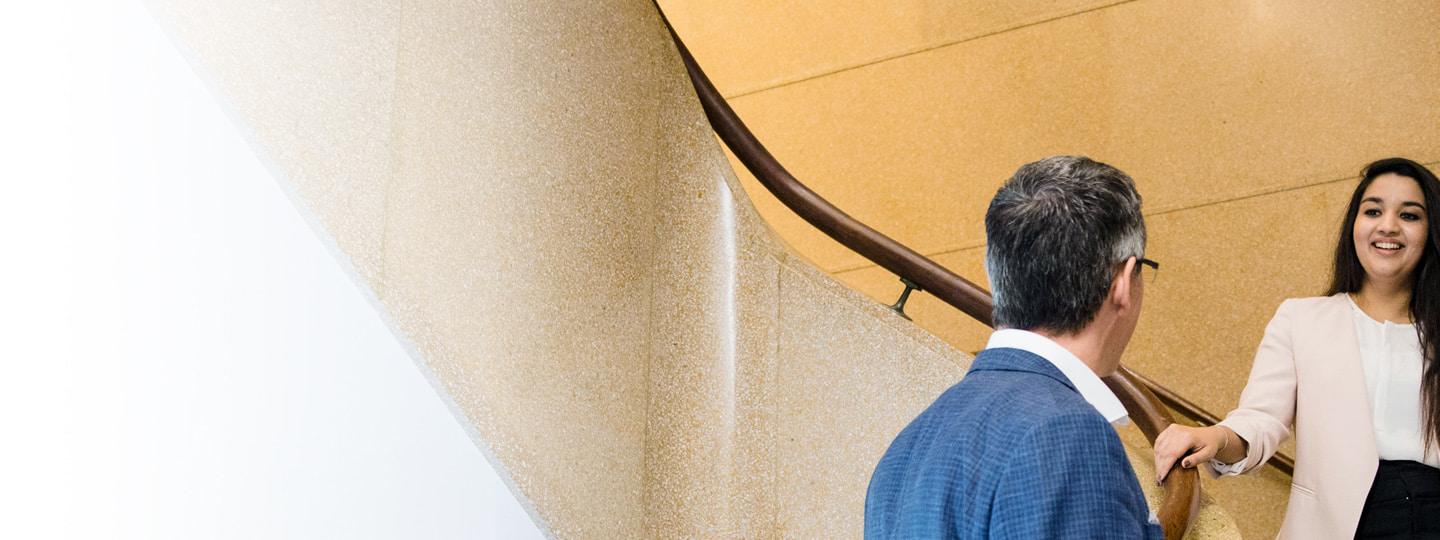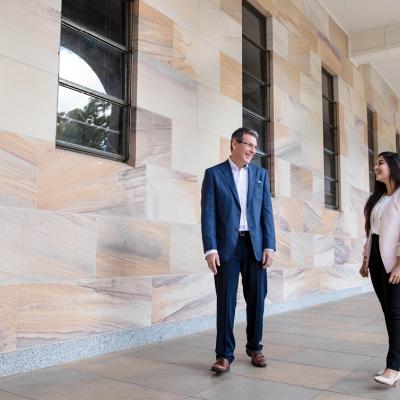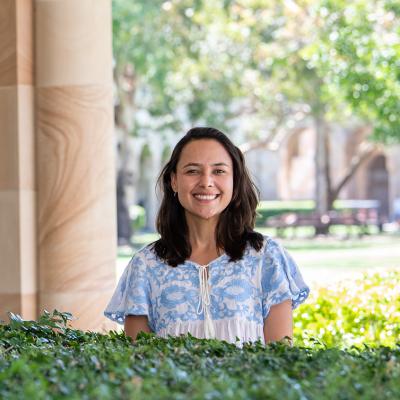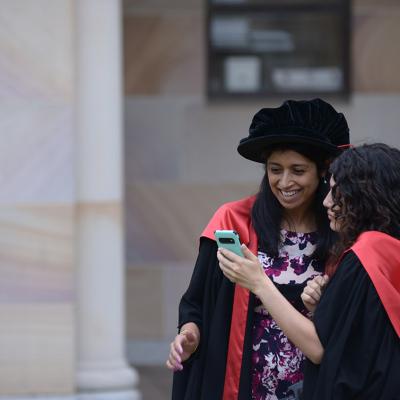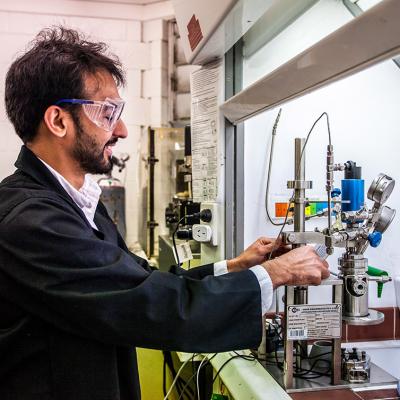With a world of opportunities before her, Umanda Madugalle made several important considerations before deciding on a cognitive neuroscience PhD at UQ.
There is unbridled excitement in the voice of Associate Professor Timothy Bredy when he discusses the workings of the human brain – and the potential discoveries of the future. That passion must surely add to the attraction for anyone who chooses to work alongside him, either as a colleague or while completing a PhD in brain science under his supervision, at the Queensland Brain Institute (QBI), housed within The University of Queensland.
“I love it. I just can’t get enough of it. It’s the brain. It’s the final frontier,” says Tim.
“Memory is one of the things that makes us who we are. We don’t understand it yet, not even close. It’s like the whole universe is still there for us to reach into.”
Umanda Madugalle, a Westpac Scholar currently pursuing a line of neuroplasticity research at QBI, is somebody who shares Tim's zeal. In particular, she is fascinated by how the brain learns from fearful experiences and adapts at a genetic level. So, studying a cognitive neuroscience PhD was a natural progression for her.
The first steps towards a PhD in brain science
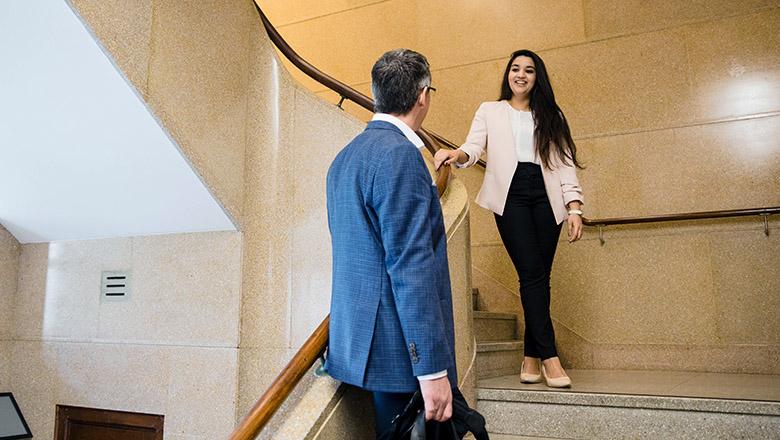
Umanda’s outstanding academic record presented several avenues for higher research honours, but she returned from overseas specifically to take her next career step as part of Tim's team.
"Initially I came into Tim’s lab as a research assistant to try it out for a year, settle in and see how I’d go," she says.
“I chose Tim’s lab because it combined molecular biology, neuroscience and experience. I find it really fascinating how experiences, even the tiniest ones, can influence behaviour in our brain patterns."
“I loved it. I loved the environment that Tim created in his lab and I wanted to help."
During this time as a research assistant, Umanda got to witness how Tim interacted with other students. This is what convinced her that he would be an ideal mentor during her neuroscience PhD.
“You work around each other 9 to 5 for 3 to 4 years and you need to be around someone who is tough but fair," she says.
"We’re human beings and we go through a lot of euphoria and emotions over a long period, so you need someone who will be understanding, but equally knows how to push you to be your best.”
From his perspective, Tim saw it as critical that Umanda brought the right skills, attitude and inquisitive lines of thought to his lab.
“It’s essential. It’s a huge investment on both sides,” he says.
“When you think about a graduate student and the amount of time and emotional energy they invest, you want to make sure you’re as close to perfect as a match before the project starts.”
Curiosity is essential for a cognitive neuroscience PhD
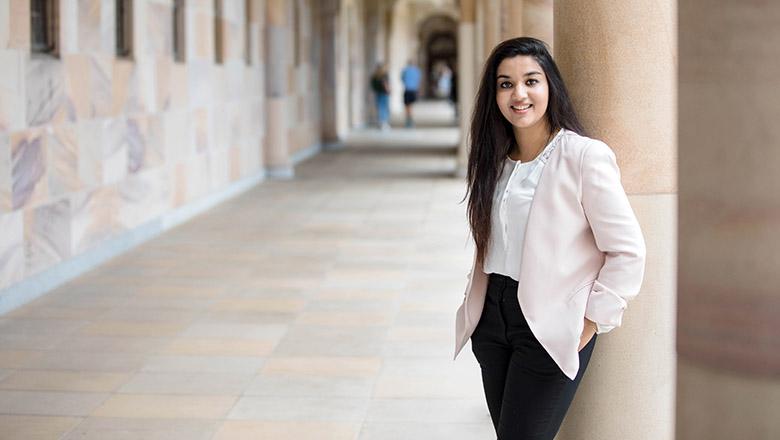
One aspect Tim certainly never seeks to impose limits upon is Umanda’s thirst for knowledge.
As a high school student, Umanda attended Brigidine College in Indooroopilly, where she displayed an early penchant for the complexities of science.
“As a kid, I always really loved challenges but also loved figuring out how things worked,” she says.
“If you think about it, it doesn’t get much harder than figuring out how the brain works. It’s so interesting; the complexity and trying to unravel that."
Umanda's academic journey was focused on science from the start, well before pursuing her neuroplasticity research.
“After graduating from UQ with my Bachelor of Science, I undertook my Honours on a UQ Scholarship at the University of Oxford in the United Kingdom," she says.
“I wanted to work in a great institute, because good resources equal great science."
"QBI is one of the leading neuroscience institutes in the world. And the fact I could return to Australia, close to my family, made it the perfect fit for me.”
How to get a PhD in neuroscience
Want to know the steps you need to take to get a PhD in neuroscience? Read our complete guide on how to get a PhD and find out what research projects are currently open for applications at QBI.
Together, Tim and Umanda are excited by what they could potentially achieve in the future, not only in understanding the brain, but in translating that to a better quality of life for people within the community.
“I’m specifically interested in adolescence and why that’s critical to the way your brain can be rewired and changed over time,” Tim says.
“The concept of reversibility – how you can change a trajectory for someone raised in a really impoverished environment, for example – is something that greatly intrigues me. Is there opportunity for intervention to change the course of their brain development?
“Understanding the nuts and bolts of how information can be encoded, stored, retrieved in the human brain has the potential to alter the way we approach conditions like post traumatic stress disorder (PTSD) or anxiety disorder.”
Your research career begins here at UQ. Explore our scholarships or apply now.

